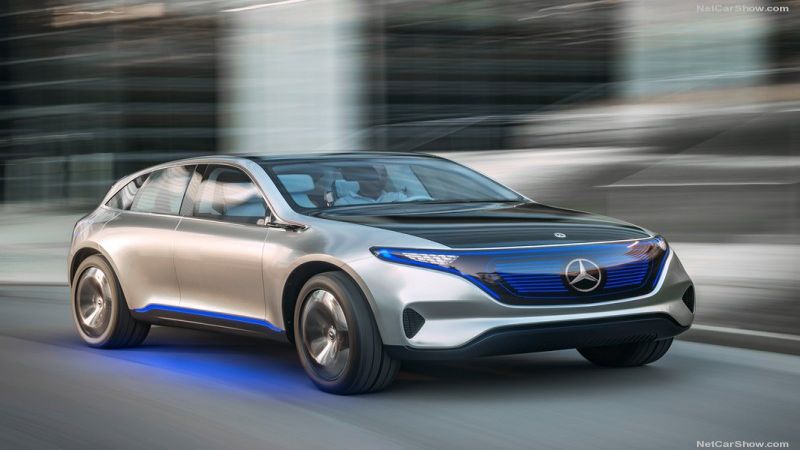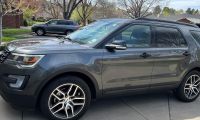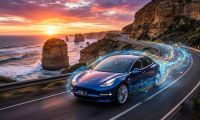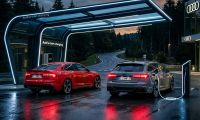For years, Tesla has essentially had the long-range electric car market to itself. Nissan has sold quite a few Leafs, but the relatively limited range and lower price meant the Leaf appealed to a different kind of customer. It was only a matter of time, though, before other major automakers started producing their own electric cars. And not only does Mercedes have more than one planned, it’s just moved up the production timetable.
Automotive News reports that Mercedes now plans to have 10 electric models on the road by 2022. Previously, the target date was three years later in 2025. You won’t have to wait until then to drive the first one, however. It’s slated to go on sale starting in 2019.
Mercedes’ Tesla Competitors
The German automaker plans to sell its electric cars under a new sub-brand called EQ. It’s named after the Generation EQ concept (pictured above) that it showed off at last year’s Paris Motor Show. With fewer people buying diesels in the wake of the Volkswagen emissions scandal and European regulators showing no signs of letting up on fuel economy standards, Mercedes believes electric cars will be needed sooner.
"Among development teams, especially in diesel, there are signs there's less to do as electrification is starting to have an impact," union representative Roman Zitzelsberger told reporters. "We found there are fewer follow-up requests and general degree of activity."
Or Will They Be Tesla Killers?
There’s no denying that Tesla created a revolutionary product with the Model S. Without it, there’s no telling how long it would have taken other automakers to begin selling electric cars. But building cars is hard and expensive, and Tesla’s far from perfect.
Not only has every new model been delayed, they’ve also dealt with quality issues. For early adopters who are passionate about electric cars, that’s not a deal-killer. But conventional buyers tend to be much more demanding. If an established automaker like Mercedes can offer refined, high-quality electric luxury vehicles that don’t suffer from the same fit and finish issues that you see on a lot of Teslas, its share of the electric car market may suffer dramatically.
Then again, Mercedes Benz doesn’t only have to worry about fending off Tesla. Several other automakers have also committed to offering their own Tesla-fighters. It’s still impossible to tell who will win out, but one thing is for sure. Five years from now, the electric car landscape will look quite a bit different than it does now.
Set Torque News as Preferred Source on Google










